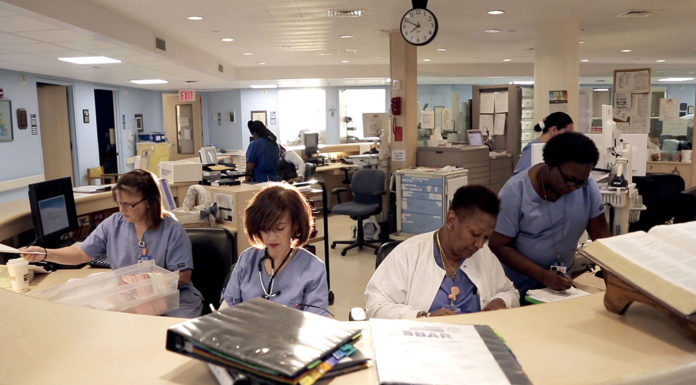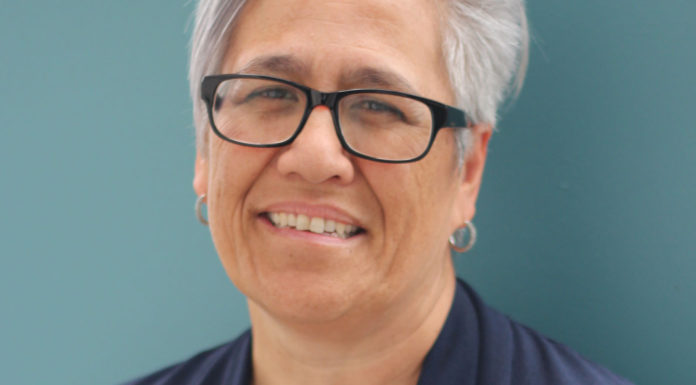Online voting for the fifth DHB offer is underway following the signing of the Safe Staffing accord with nurses’ response varying from sceptical to warily hopeful that it will make a difference to understaffing.
Yesterday the district health boards, the nurses’ union NZNO and the Director-General of Health signed the Safe Staffing accord brokered and witnessed by the Minister of Health Dr David Clark that he says will stop public hospital nurses having to run from patient to patient due to under staffing.
DHBs’ spokesperson Jim Green acknowledged there was no silver bullet for solving the staffing issue but the DHBs’ commitment to resourcing the extra nurses needed to implement the Care Capacity Demand Management system, by 2021 would help. Monitoring the implementation will be the Ministry of Health with regular reports to Clark who said he expected DHB chief executives to be held accountable.
Speeding up implementation of CCDM has been in past DHB NZNO agreements but NZNO chief executive Memo Musa said he was confident that the Government-based accord would bring an end to “many, many years of attempts” by NZNO to get the proven CCDM safe staffing programme into all public hospitals.
The accord has been negotiated alongside the current DHB NZNO agreement impasse with the accord to go ahead even if the fifth offer (details below) is not ratified.
It is clear from social media that if the tweaked deal, and the separate accord agreement, does result in the majority of NZNO’s DHB nurses voting in favour of the offer that a large number of nurses will be left disappointed to angry, believing it offers too little to address a real workforce crisis.
The NZNO is telling its DHB members that while the offer doesn’t deliver everything wanted by members the changes are “significant and substantial” and puts members in a very strong position for further negotiations in the future. Some members agree, some are wearily ready to compromise, and others are angry that the momentum built up this year to address a decade of building tension has not delivered a more upfront pay increase and action on genuine safe staffing concerns.
If the offer is ratified, all will be wanting quick proof that the accord and promised pay equity can deliver major improvements to the stretched and stressed workforce before the proposed agreement expires in two years’ time.
If the fifth offer is rejected then an NZNO industrial spokesperson, Glenda Alexander, has said she believes it should not launch into another strike ballot but instead pause and get a clear consensus on what the majority of members’ goal posts are before determining the most effective way to reach a settlement.
Online voting on the offer closes Monday August 6.
LATEST (fifth) OFFER
Changes from fourth offer
- Reshuffles again introduction of new salary steps for nurses/midwives on basic pay scale – Step 6 stays at May 2019 and Step 7 is moved from August 2020 (which was just outside of proposed MECA term) to May 2020. Equivalent of 12.5% for those on step 6 in August 2019 and 15.9% on step 7 in May 2020.
- National framework for ‘enforceable mechanisms’ for implementing safe staffing CCDM tools including a bi-monthly report on DHBs response to ‘real’ vacancies’ and safe staffing progress.
Retains from fourth offer
- Retains three-year term (expiry July 31 2020)
- Retains funding for safe staffing initiatives. Immediate $38 million for additional 500 nursing staff across 20 DHBs, $10 million for extra DHB nursing staffing for implementing CCDM and extra $750K for SSHW Unit to help ‘fast-track’ CCDM.
- Retains $2000 lump sum, increase to on-call rates and EN PDRP increase
- Retains 3% increase June 2018 + 3% August 2018 + 3% August 2019
- Retains 1% added to senior nurse/midwife pay scale in June 2018
- Adds 3% to top of community nurse/midwife pay scale May 2019 (total pay rises equivalent to 12.6% over term of MECA for nurses on top scale)
- Extra salary step for enrolled nurses May 2019 (equivalent to 3% and 12.5% total increase over term for ENs on new step)
- Extra 3% increases on all grade steps for senior nurses (equivalent to 13.6% over term for senior nurses on top step of each grade)
- Extra salary step for HCAs May 2019 (equivalent to 12.5% over term for those on new step)
- Commitment to implement pay equity negotiation outcomes from December 31 2019.























